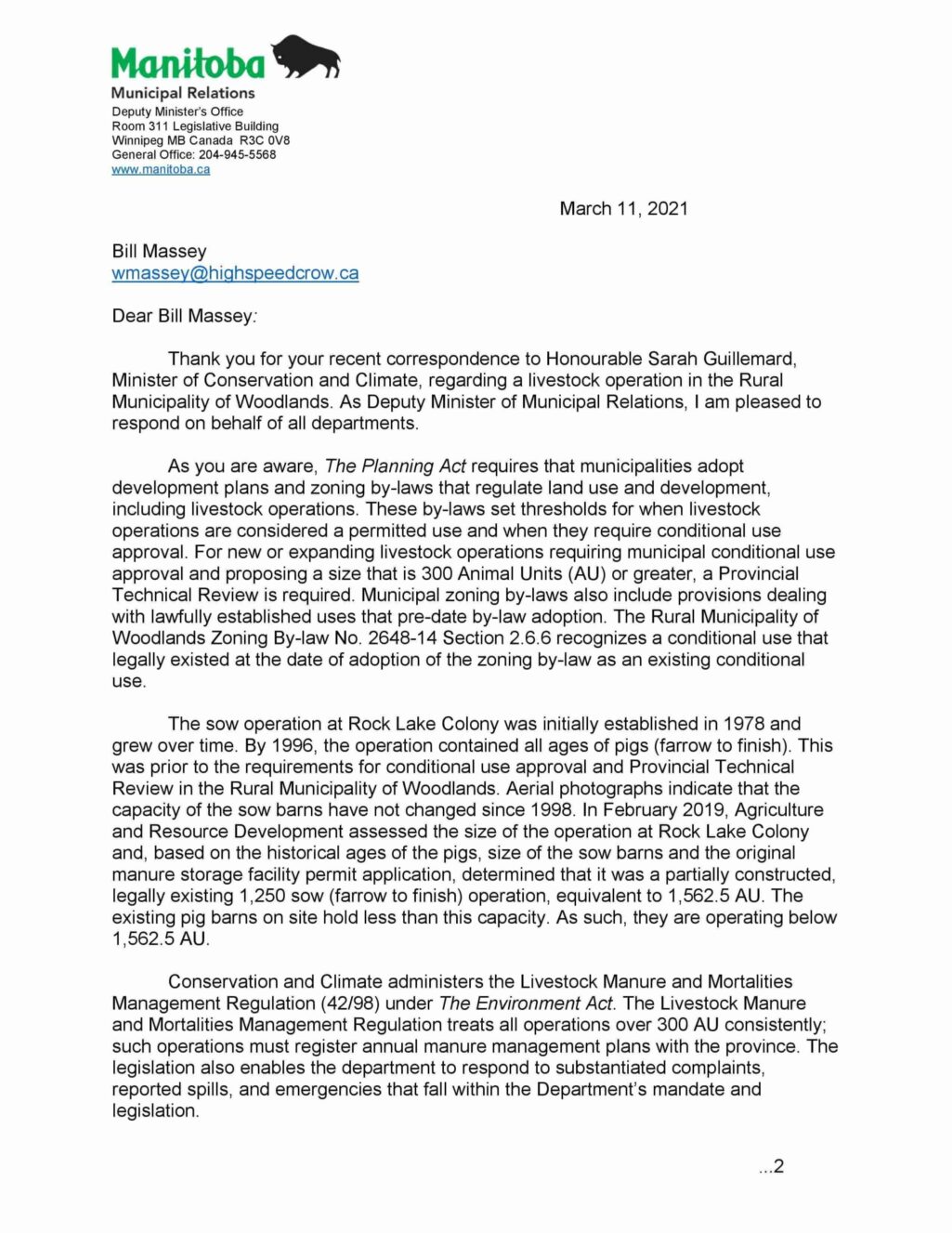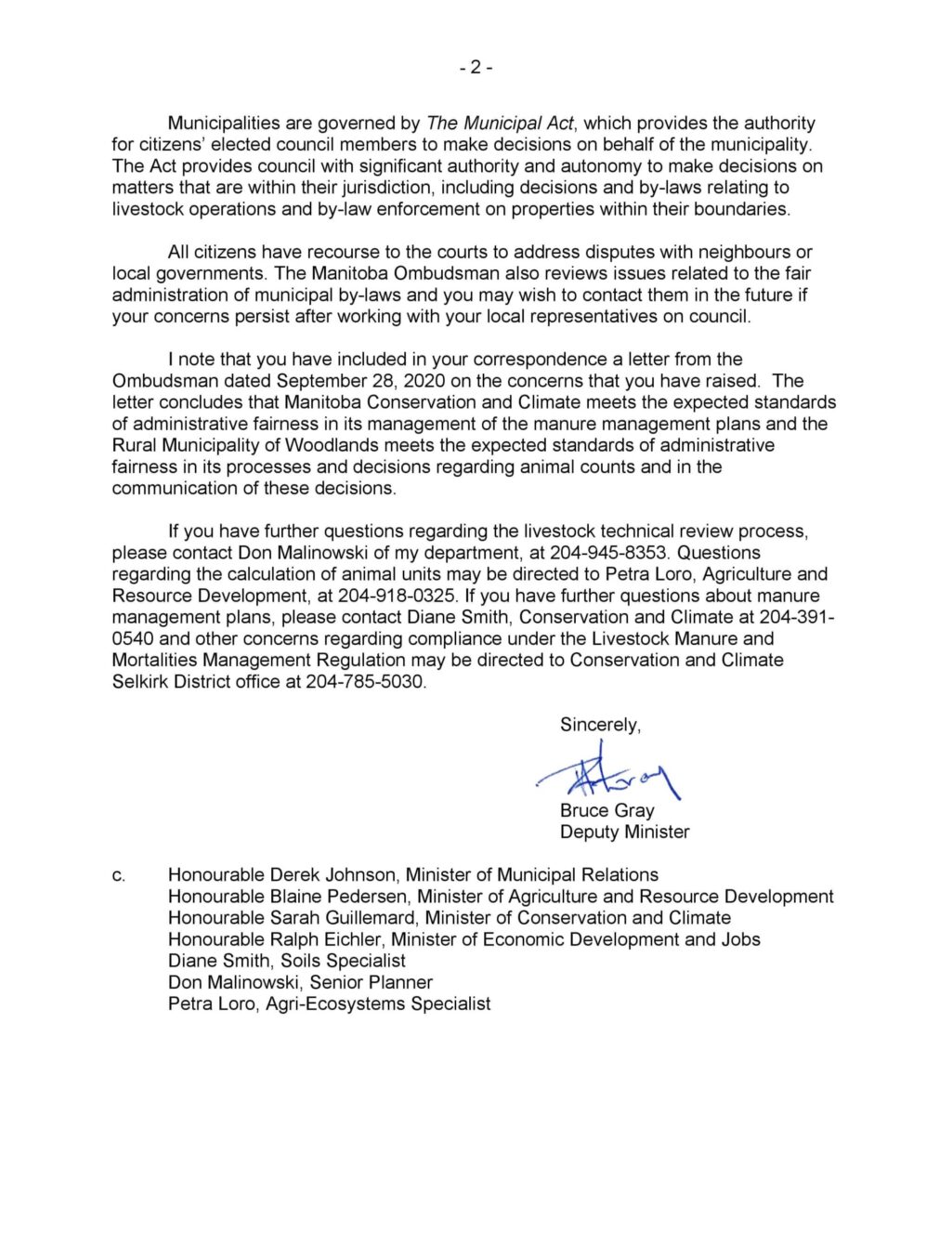Let me say at the outset that this is not good news for our group at Grosse Isle. This letter taken at face value makes the argument that the colony should be allowed to have as many as 1562.5 animal units in their operation. If this information was correct the colony would have used this in their application to replace existing facilities. The reason they didn’t is because the information is not correct. I had conversations with Department officials several years ago about this and I told them it was not correct and we have evidence that proves that the colony had 658 animal units in that location in 2004. They would not listen because they were bent on this course of action. The province is using an application for a manure storage facility and aerial photographs to prove their point. Because of barn supposedly existed at the colony in 1998 does not prove that it had pigs in it. In terms of the application for manure storage facility, I would like to know if anybody from the Department went to the colony to determine if the numbers given in the application actually existed at that time. I think the colony was planning on an expansion and filled in the application accordingly.
The government has consistently refused to meet with us to discuss this information and to look at our evidence. I suggest that it’s because they know that the information is not correct. They have gone ahead and written a document based on the flimsiest of evidence and because it’s the government it carries a lot of weight.
So what do we do about it? Well we are beginning with the publication of my book “Of Pork and Potatoes” to let the people know the truth about what’s going on out here. We have also contacted a number of media sources, both local and provincial for that purpose also. We are working with the provincial organization called Hog Watch, a group of people who are concerned about the hog industry in Manitoba.
So there you have it. This letter may not be as much of a setback as it may be an opportunity to expose the government’s true attitude about the environment where this industry is concerned, and its effects on rural citizens.


